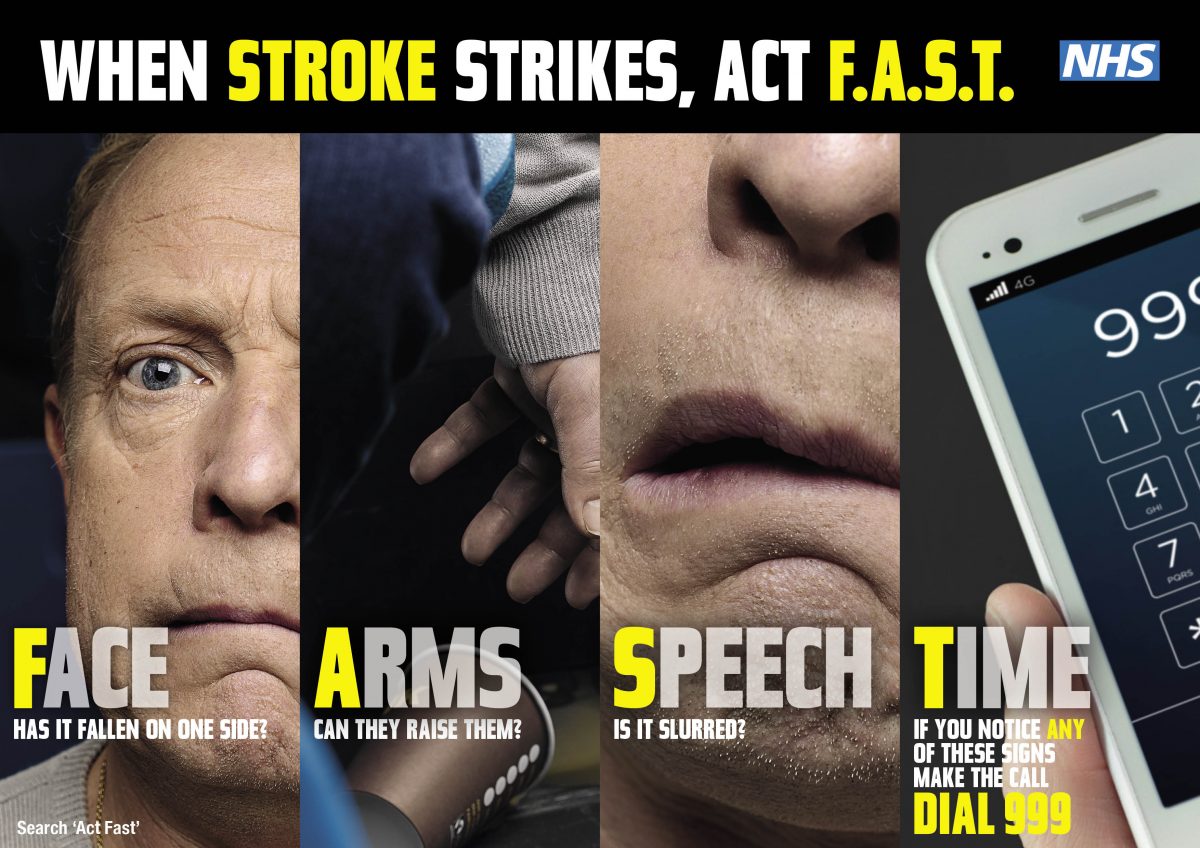People in Oxfordshire are reminded that support is still available for patients with stroke during the COVID-19 pandemic.
A stroke is a medical emergency and prompt treatment is essential.
Symptoms of stroke include:
- Sudden weakness or numbness on one side of the body
- Difficulty finding words or speaking in clear sentences
- Sudden blurred vision or loss of sight in one or both eyes
- Sudden memory loss or confusion, and dizziness or a sudden fall
- A sudden, severe headache
A way to remember this is the FAST test – looking for facial weakness, arm weakness, speech problems, and then it’s time to call 999.

Oxford University Hospitals NHS Foundation Trust (OUH) can provide urgent help and support should you or someone you know suffer a stroke.
They can also offer more routine support for stroke patients, and have measures in place to protect your safety when receiving treatment.
Dr Phil Mathieson, Clinical Lead for stroke at OUH, said: “If you or someone you know is having a stroke, you should call 999 immediately and ask for an ambulance. You will be brought to the Emergency Department at the John Radcliffe Hospital and given the urgent care you need. We have measures in place to keep you safe, including triaging patients with suspected COVID-19, so everyone who comes to hospital will be treated safely.
“Our Hyper Acute Stroke Unit (HASU) is still available to see patients, and offer treatments such as thrombolysis and mechanical thromectomy to remove blood clots from the brain. Ongoing treatment is also an important part of stroke care and rehabilitation.”
All aspects of stroke care, including assessing those with Transient Ischaemic Attacks (mini-stroke) are still available during the COVID-19 pandemic, and the teams have taken action to minimise the need for patients to make unnecessary visits to hospital. These include:
- Telephone and video consultations
- Arranging for patients to come directly to the relevant department for essential scans and tests
- Seeing and treating patients in the same visit to the Emergency Department rather than bringing them back to clinic
- Using the early supported discharge team to offer rehabilitation in the patient’s own home where safe and possible

At Oxford Health we run the Oxfordshire Stroke Rehabilitation Unit (OSRU), a 20-bed inpatient unit at Abingdon Community Hospital. Specialist multi-disciplinary teams and therapists, some of whom are picture above, provide a short period of inpatient rehabilitation for people who have had a stroke, are registered with an Oxfordshire GP, and are not able to be discharged directly home from hospital.
Emma Garratt, OSRU interim Ward Manager and Clinical Lead Physiotherapist, said: “We’ve put in extra measures to keep our patients safe during this time. Although we have had to suspend visitors from the unit because of the pandemic, we have found new and innovative ways to support patients’ wellbeing. We’ve been using technology to enable ‘virtual visits’ from friends and family which has really helped boost morale.
“We have also instigated a phone and videocall follow-up service, to provide advice and support post discharge. We like to forge a strong bond with our patients and we can be sure we can progress their on-going rehabilitation, despite these challenging times”.
People are also reminded that Emergency Departments can still offer urgent medical care during the COVID-19 pandemic, and that maternity services at OUH can still offer medical support and advice to women in Oxfordshire.
Published: 12 May 2020

